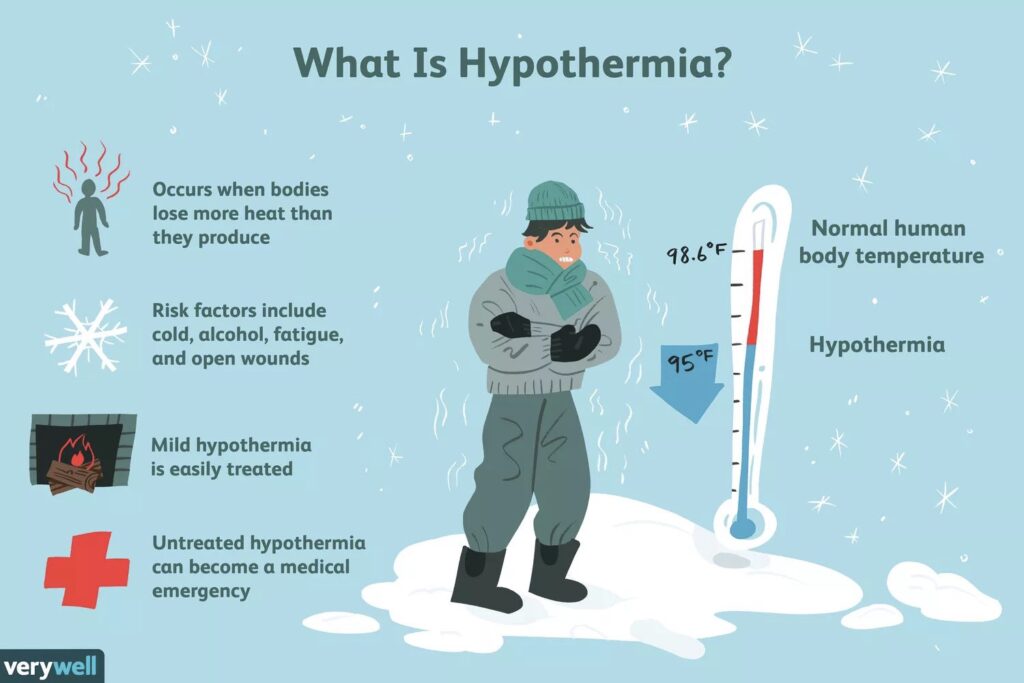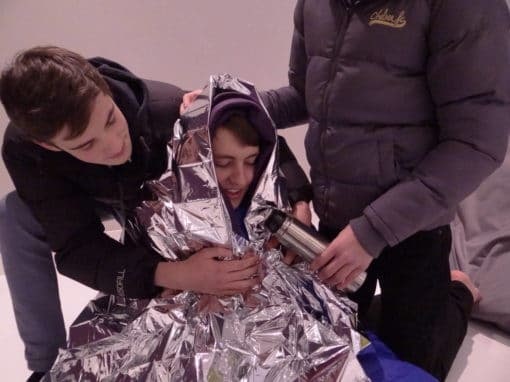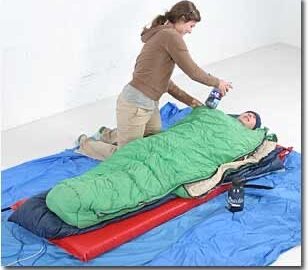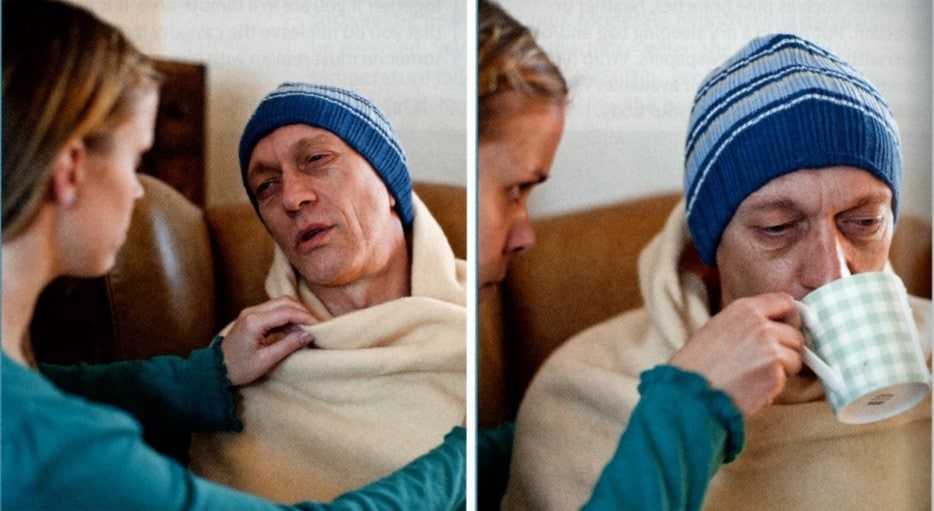Thank you, readers, and my friends for all your support and comments on my last blog An Ode to Teachers. Trust all are safe out there and continuing to be safe. The surge of the pandemic seems to have slowed yet it is imperative on our part not to let our guard down. Jaggy and Maggie are back in this blog to discuss another situation on first aid which is HYPOTHERMIA.
Maggie: “Hello Jaggy! Trust you are fine.”
Jaggy: “Yes, Maggie as always on top of the world.”
Maggie: “On top of the world as always. Good to hear that every time from you.”
Jaggy:” So, how was your trekking trip and did you encounter any Snakes?”
Maggie: “The trek went off very smoothly and we did not encounter any snakes thank God for that.”
Jaggy: “Good to hear that and the trek seems to have refreshed you.”
Maggie: “Yes, Jaggy it has refreshed me. I feel energised.”
Jaggy: “Any situation you had encountered other than the aches and pains?”
Maggie: “There was one situation where we all got wet due to a sudden downpour. Most of us were ok but one of the guys was shivering very badly for a lot of time.”
Jaggy: “Well, it must have been an attack of Hypothermia.”
Maggie: “Hypothermia what does that mean?”
Jaggy: “It is a medical condition for dropping of body temperature below normal.”
Maggie: “I know about body temperature, but could you explain a little more.”
Jaggy: “Hypothermia is a medical emergency that occurs when your body loses heat faster than it can produce heat, causing a dangerously low body temperature. Normal body temperature is around 98.6 F (37 C). Hypothermia (hi-poe-THUR-me-uh) occurs as your body temperature falls below 95 F (35 C).”

Maggie: “How and when does this happen?”
Jaggy: “It happens when the body is exposed to extremely cold conditions like Wind, getting wet in cold water, and freezing temperatures whether indoors or outdoors. The person may be affected even if living in a home which does not have heating equipment in cold environs.”
Maggie: “What are the symptoms and how do we recognise it?”
Jaggy: “It starts first with shivering, and then the skin becomes cold followed by mumbling or slurred speech and shallow breathing. The victim is usually confused as he is disoriented and there will be lack of energy and he may become drowsy. If not treated immediately it could lead to complications.”
Maggie: “What do we do?”
Jaggy: “First get the person to a place of shelter out of the cold. Remove wet clothing and pat the person dry. Put dry clothes on the person cover the body and head but not the face with blankets towels or even newspapers. Call for the local emergency services remained with the person until someone with more advanced training arrives if the person becomes unresponsive and he’s not breathing normally, or gasping give CPR.”

Maggie: “I remember now. One of our friends who is trained did exactly what you told and after some time, the guy recovered. We did not need the services of the ambulance or Hospital. It was scary though.”
Jaggy: “Good Maggie. Your friend has done well. He might have even given him Hot Coffee to drink after a few minutes.”
Maggie: “Correct but one of my other friends suggested to give him some brandy.”
Jaggy: “Brandy or alcohol should not be given as it dilutes the superficial blood vessels and allows heat to escape making it even worse. The idea is to try and warm him up and in doing so never take him near places of radiant heat like a fireplace or hot water bottles as it causes burns to the skin.”
Maggie: “Can we give him anything to eat if he is conscious.”
Jaggy: “Chocolates help as they are a high on energy.”
Maggie: “What if it happens indoors?”
Jaggy: “Wrap up the person in a blanket. Give him hot soup or coffee or tea to sip slowly to regain warmth in the body. Minor Hypothermia can always be reversed but if severity increases it can be fatal.”
Maggie: “What else can we carry apart from a first aid kit while trekking?”
Jaggy: “An extra sleeping bag, aluminium foils or wrappers can also be taken along, and oral rehydrating salts can be added too.”
Maggie: “Oral rehydrating salts what for?”
Jaggy: “In case you trek in summer. Nice talking to you Maggie.”
Maggie: “Thanks, Jaggy for all the inputs. Useful and lifesaving.”
Maggie and Jaggy will be back with more in the next blog. Till then read, share, and teach so that we all can save a Life. See you all in my next blog.
Seshadri Varadarajan.

